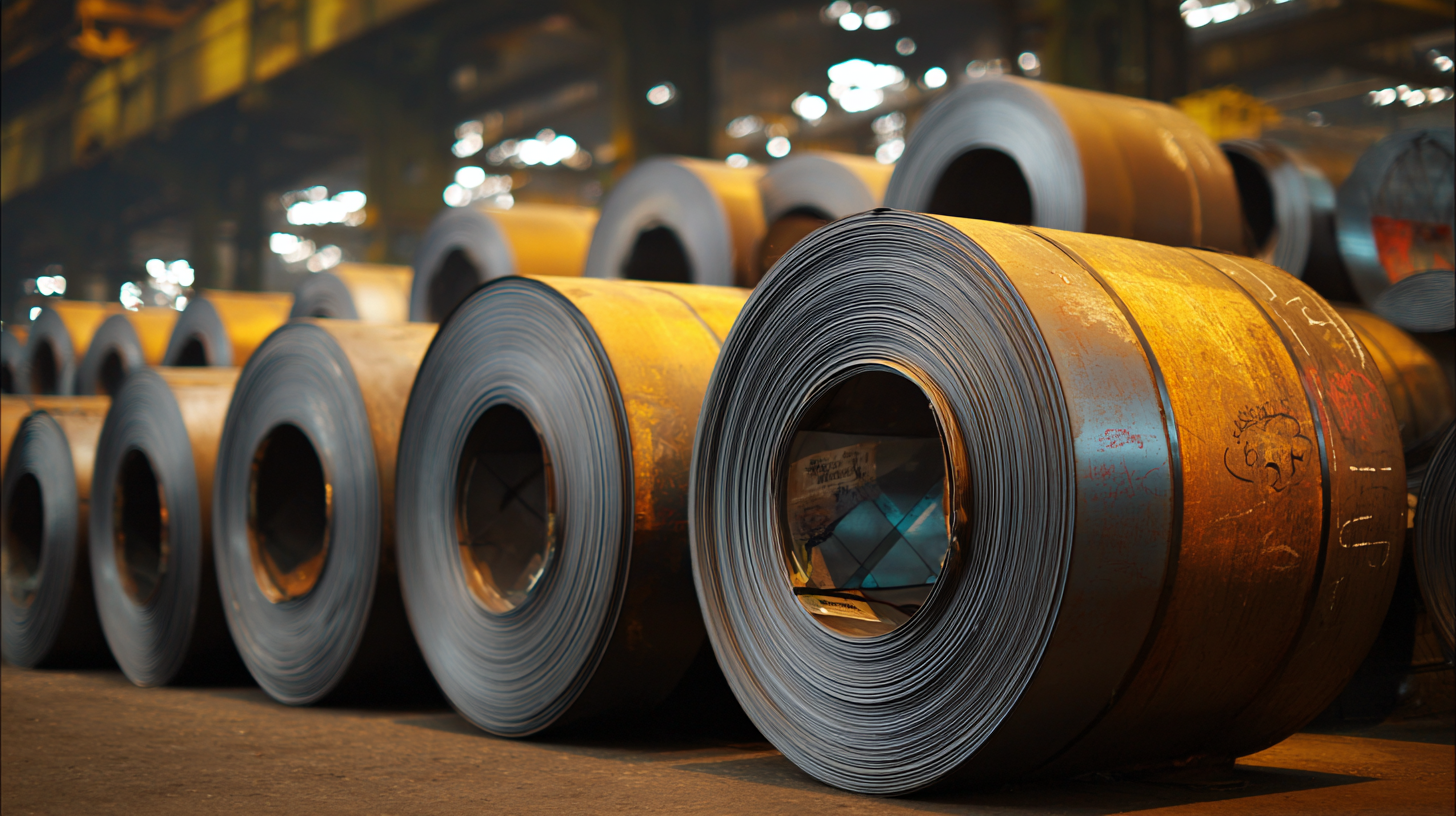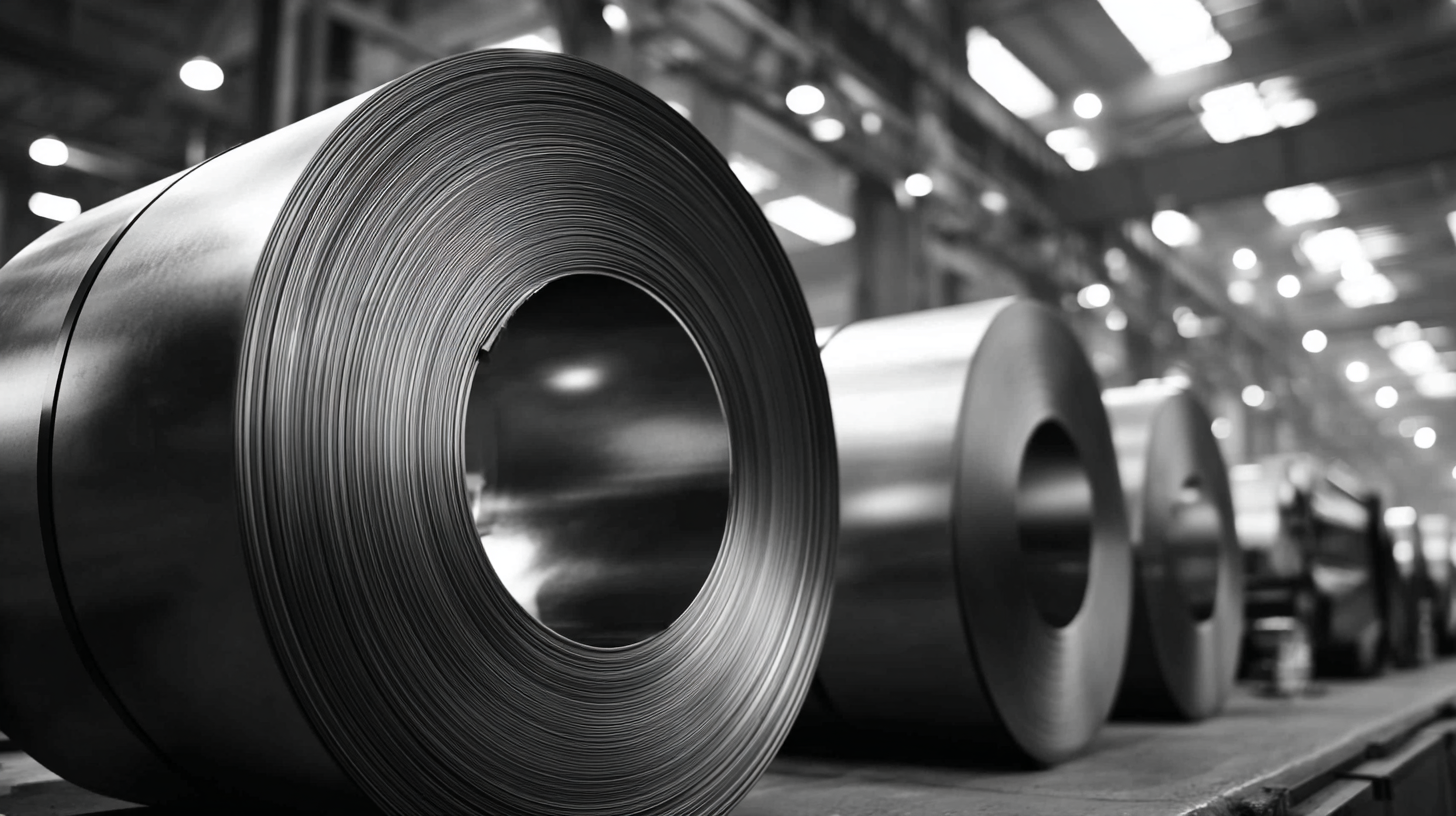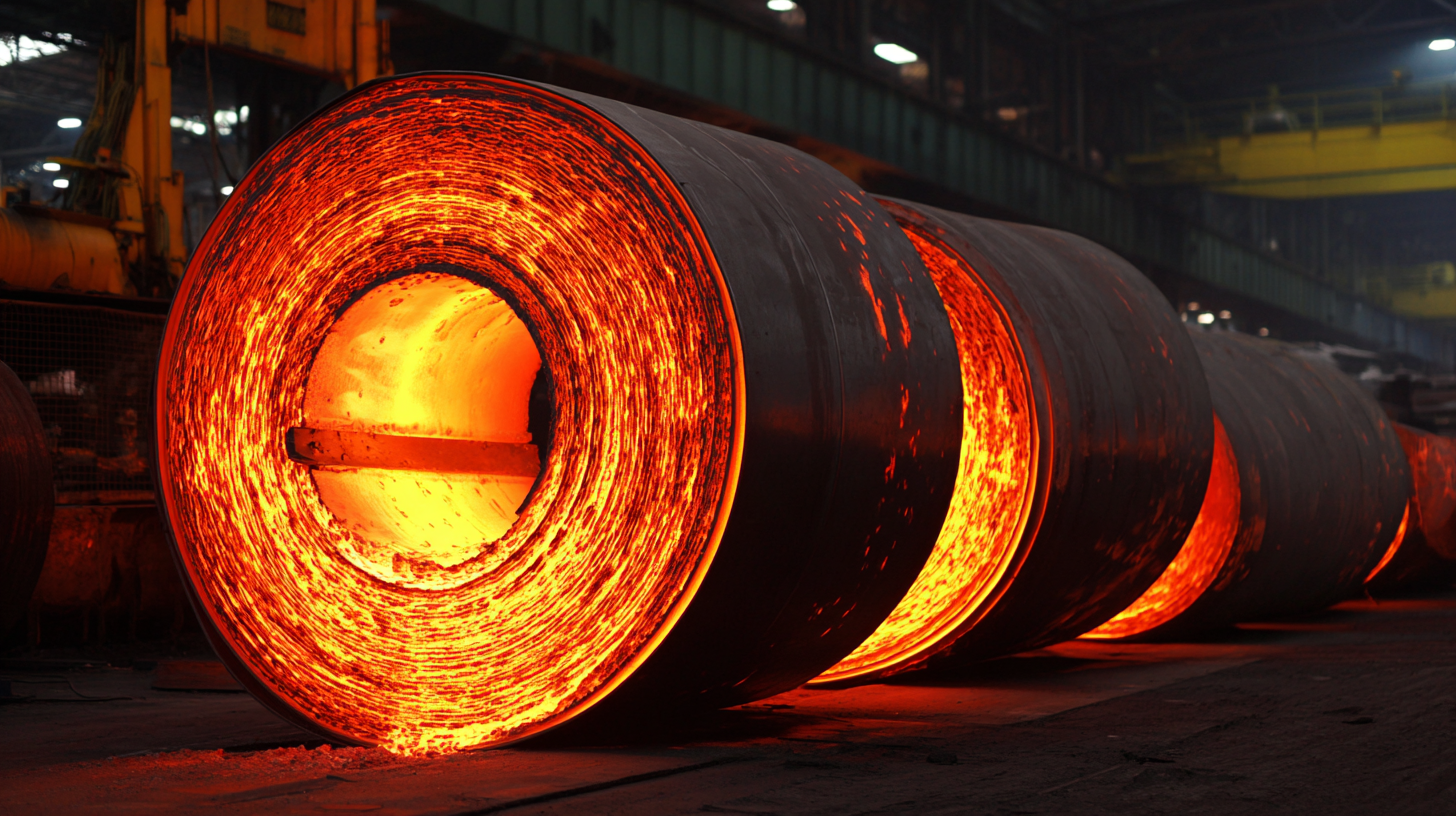The demand for high-quality Carbon Steel Coil has surged in recent years, driven by the expanding manufacturing sector and the increasing need for durable and reliable materials. According to a report by the World Steel Association, global steel production reached 1.88 billion metric tons in 2021, with carbon steel accounting for a significant portion of this output. This growth highlights the critical role that Carbon Steel Coil plays in various applications, from automotive to construction.

However, sourcing the best Carbon Steel Coil can be fraught with challenges, including varying quality standards, supply chain disruptions, and fluctuating prices. Understanding these issues is essential for manufacturers seeking to optimize their production processes and ensure the longevity of their products. This blog aims to provide insights into how to effortlessly navigate these challenges and source the best Carbon Steel Coil tailored to your specific manufacturing needs.
When sourcing carbon steel coils, understanding their key characteristics and benefits is crucial for optimizing manufacturing processes. Carbon steel coils are highly revered for their strength, durability, and versatility in various applications. They typically consist of a carbon content ranging from 0.05% to 2.0%, which significantly influences their mechanical properties. Higher carbon content enhances tensile strength but may reduce ductility. Manufacturer reports indicate that carbon steel coils can achieve yield strengths of up to 300 MPa or more, making them suitable for high-stress applications including construction and automotive sectors.
Additionally, the cost-effectiveness of carbon steel coils contributes significantly to their adoption in manufacturing. According to recent market analyses, the global carbon steel production is expected to reach 1.7 billion metric tons by 2025, demonstrating robust demand driven by infrastructural projects and industrial applications. The economic stability established by scrap metal pricing and processing innovations has further solidified investor confidence, as seen in recent large-scale investments in mills. This ensures a reliable supply of quality carbon steel, which manufacturers can leverage to enhance their production efficiency and product quality. By prioritizing sourcing strategies that emphasize these characteristics, manufacturers can gain a competitive edge in their respective markets.

When it comes to sourcing carbon steel coils for manufacturing, understanding your specific requirements is crucial for optimizing the selection process. According to the World Steel Association, global steel production reached approximately 1.86 billion metric tons in 2021, with carbon steel comprising a significant portion of that output. Therefore, defining the type of carbon steel coil needed—be it hot-rolled or cold-rolled—depends heavily on the desired mechanical properties and the end use of the products being manufactured.
Further, industry reports indicate that the demand for specific grades of carbon steel, such as ASTM A36 and ASTM A570, is on the rise due to their versatility in various applications, including automotive and construction sectors. Identifying factors such as thickness, yield strength, and tensile strength can guide manufacturers in sourcing high-quality materials that not only meet industry standards but also enhance product durability. It is advisable to consult with suppliers who offer detailed specification sheets and testing certifications, ensuring that the carbon steel coils align with your production requirements and regulatory compliance.
When evaluating quality standards in carbon steel production, it is essential to understand the various factors that can impact the material's overall performance and sustainability. The importance of rigorous quality assessment cannot be overstated, especially in light of the latest insights from industrial studies. For instance, life cycle assessments (LCA) in energy-intensive sectors such as steel manufacturing highlight not only the environmental impacts but also the efficiency of production processes. By integrating LCA methodologies, manufacturers can identify critical phases in production that contribute significantly to carbon emissions and subsequently take steps toward minimizing these footprints.
Moreover, the adoption of advanced technologies for pollution reduction in the iron and steel industry plays a pivotal role in achieving higher quality standards. The synergy between pollution reduction techniques and carbon capture technologies is essential for transitioning to low-carbon production models. As studies emphasize, the coordination between urban sustainability goals and industrial production standards is vital. By prioritizing quality evaluations that focus on low-carbon technologies, manufacturers can ensure that the carbon steel coils they source not only meet industry standards but also contribute positively to environmental stewardship.
When selecting suppliers for carbon steel coils, it’s essential to ask the right questions to ensure quality and reliability. Start by inquiring about their sourcing process. A reputable supplier should be transparent about where their materials come from and the criteria they use for selecting their steel. Understanding the supply chain not only helps in assessing quality but also ensures that you’re dealing with an ethical supplier.
Another crucial aspect is to evaluate their quality control measures. Ask potential suppliers about their certifications and the standards they adhere to. Suppliers should be able to provide documentation proving their compliance with industry standards. This ensures that the carbon steel coils meet specific performance criteria necessary for your manufacturing needs.
Lastly, consider requesting samples before making a larger commitment. This allows you to assess the material's quality firsthand. By examining the coils for uniformity, finish, and any potential defects, you can make a more informed decision. A trustworthy supplier will be more than willing to provide samples to showcase their product's quality.

Sourcing carbon steel coils is a vital component of manufacturing across many industries, yet the process can often be cumbersome. According to a recent report by the World Steel Association, global production of carbon steel reached approximately 1.9 billion tons in 2022, emphasizing the material’s importance. Streamlining the sourcing process for carbon steel coils not only enhances efficiency but can also lead to significant cost savings. By utilizing digital platforms to connect with suppliers, manufacturers can quickly access competitive quotes and ensure the best quality materials for their projects.
Integrating advanced analytics into the sourcing process further enhances decision-making efficiency. Research from the Steel Market Development Institute indicates that manufacturers who employ data-driven strategies can reduce sourcing time by up to 30%. By tracking market trends and analyzing supplier performance, businesses can make informed choices that align with their production requirements. Implementing a systematic approach to supplier evaluation can lead to long-lasting partnerships and a more reliable supply chain, ultimately fueling production capabilities and enhancing competitiveness in the marketplace.



